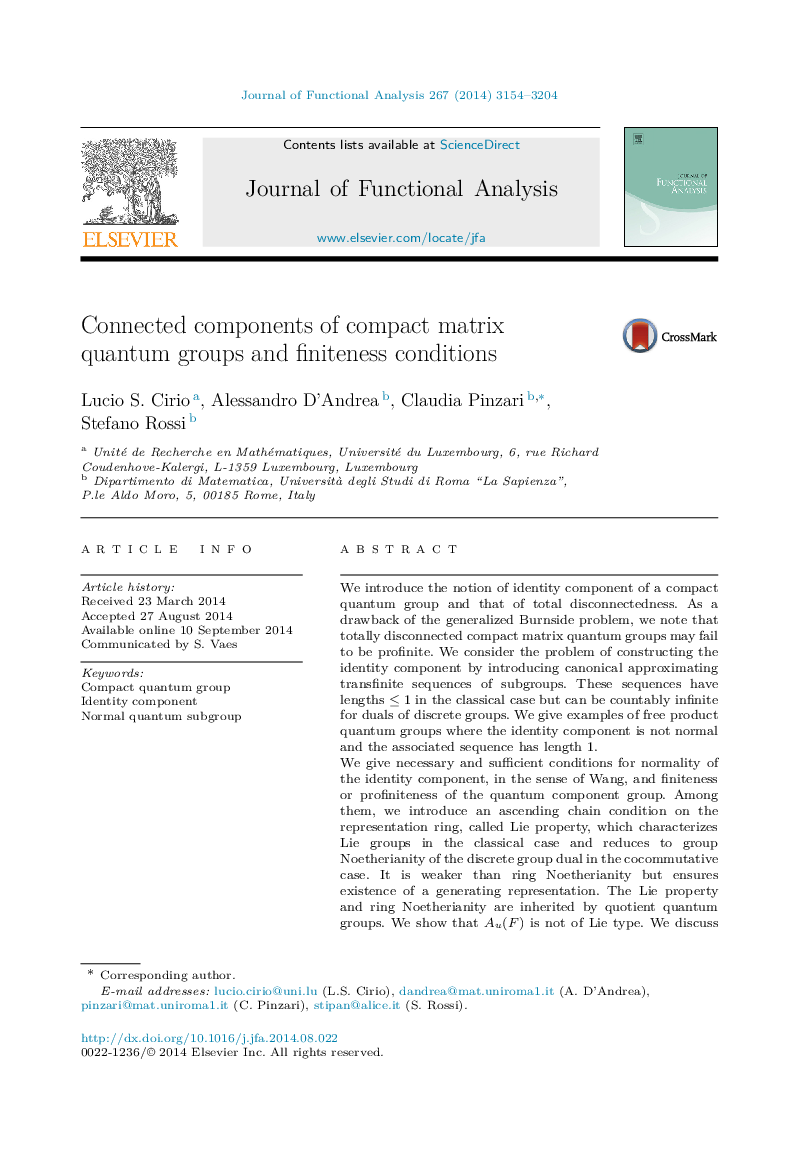| Article ID | Journal | Published Year | Pages | File Type |
|---|---|---|---|---|
| 4590043 | Journal of Functional Analysis | 2014 | 51 Pages |
We introduce the notion of identity component of a compact quantum group and that of total disconnectedness. As a drawback of the generalized Burnside problem, we note that totally disconnected compact matrix quantum groups may fail to be profinite. We consider the problem of constructing the identity component by introducing canonical approximating transfinite sequences of subgroups. These sequences have lengths ≤1 in the classical case but can be countably infinite for duals of discrete groups. We give examples of free product quantum groups where the identity component is not normal and the associated sequence has length 1.We give necessary and sufficient conditions for normality of the identity component, in the sense of Wang, and finiteness or profiniteness of the quantum component group. Among them, we introduce an ascending chain condition on the representation ring, called Lie property, which characterizes Lie groups in the classical case and reduces to group Noetherianity of the discrete group dual in the cocommutative case. It is weaker than ring Noetherianity but ensures existence of a generating representation. The Lie property and ring Noetherianity are inherited by quotient quantum groups. We show that Au(F)Au(F) is not of Lie type. We discuss an example arising from the compact real form of Uq(sl2)Uq(sl2) for q<0q<0.
